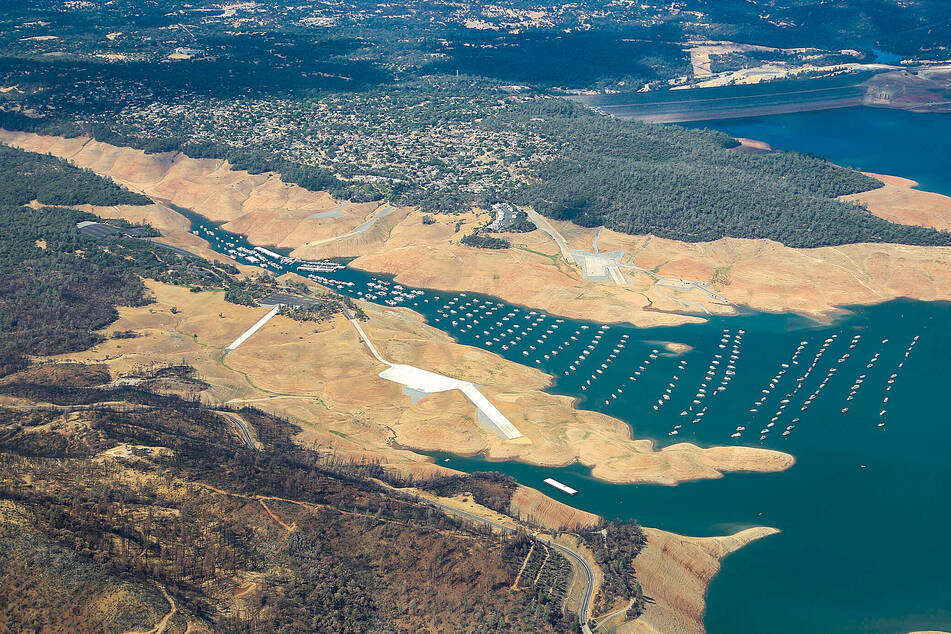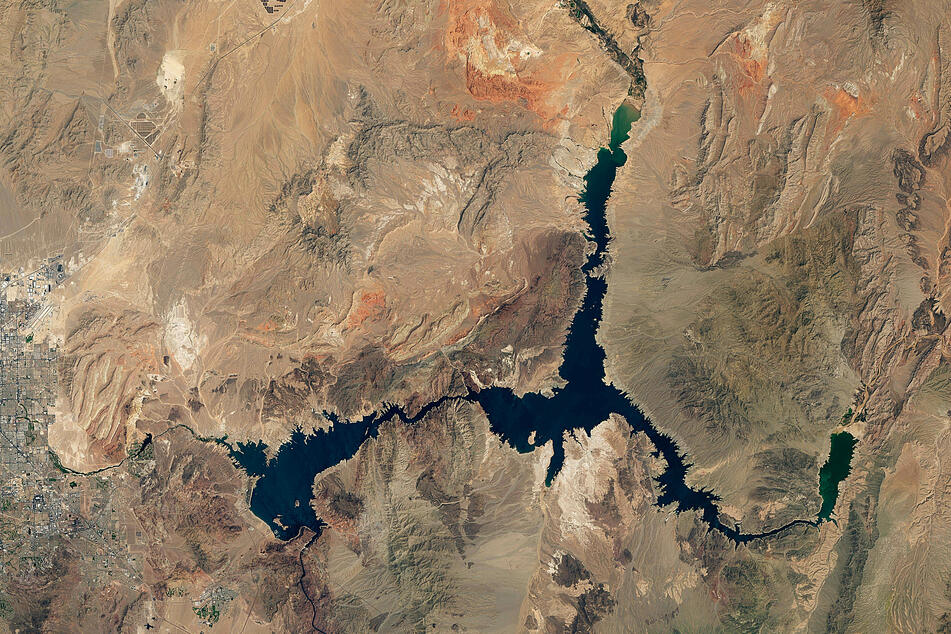The West's megadrought is the worst in 1,200 years
Los Angeles, California - The extreme dryness that has ravaged the West for more than two decades now ranks as the driest 22-year period in at least 1,200 years. Now, scientists have found that this megadrought is intensified by humanity’s heating of the planet.

In newly released research, scientists examined major droughts in southwestern North America dating back to the year 800. They soon determined that the region’s dryness in the current century has surpassed the severity of a megadrought in the late 1500s, making this the driest 22-year stretch on record.
The study, which was published Monday in the journal Nature Climate Change, has added to a growing body of research that shows the American West faces major challenges as the burning of fossil fuels continues to push temperatures higher, intensifying the drying trend.
The authors of the study also concluded that dry conditions will likely continue through this year and, judging from the past, may persist for years to come.
"The results are really concerning, because it’s showing that the drought conditions we are facing now are substantially worse because of climate change," said Park Williams, a climate scientist at UCLA and the study’s lead author.
"But that also there is quite a bit of room for drought conditions to get worse."
Where the water flows ... or doesn't

Williams and his colleagues compared the West's current drought to seven other megadroughts in the region between the 800s and 1500s that each lasted between 23 and 30 years.
They used ancient records of these droughts captured in the growth rings of trees at about 1,600 sites from Montana, to California, to northern Mexico.
Some scientists describe the trend in the West as "aridification" and say the region must prepare for the drying to continue as temperatures continue to climb.
Williams said the West is prone to extreme variability from dry periods to wet periods, like a yo-yo going up and down, but these variations are now "superimposed on a serious drying trend" due to climate change.
"The dice have been loaded so heavily toward drying," he added.
In addition, the average temperature in southwestern North America since 2000 has been 1.6 degrees Fahrenheit warmer than the average during the previous 50 years, the researchers said.
In turn, higher temperatures make the atmosphere thirstier, drying out soil and vegetation in much the same way that "our house plants dry out when we turn on the heater," Williams explained. The warmer temperatures have compounded the drought by increasing evaporation, drying soils, and leaving less water flowing in streams and rivers.
The scientists pointed out that water levels in the Colorado River during 2020 and 2021 shrank to the lowest two-year average in more than a century of record keeping. The river supplies water across seven states, from Wyoming to California, and also to northern Mexico.
But the river's water supply has been chronically overused, and the drought has compounded the problem. Over the past year, its two largest reservoirs, Lake Mead and Lake Powell, dwindled to their lowest levels on record.
"We need to understand that the water budget of the West is changing beneath our feet rapidly," Williams said. "We need to be prepared for a much drier future and to not rely so much on hope that when it gets wet again, we can just go back to business-as-usual water management."
"The big megadroughts that occurred last millennium occurred in the absence of climate change," he continued. When such megadroughts return, they’ll be occurring "in a world where the atmosphere is also artificially warmer because of human-caused climate change, which would be absolutely catastrophic."
Cover photo: IMAGO/ZUMA Wire

